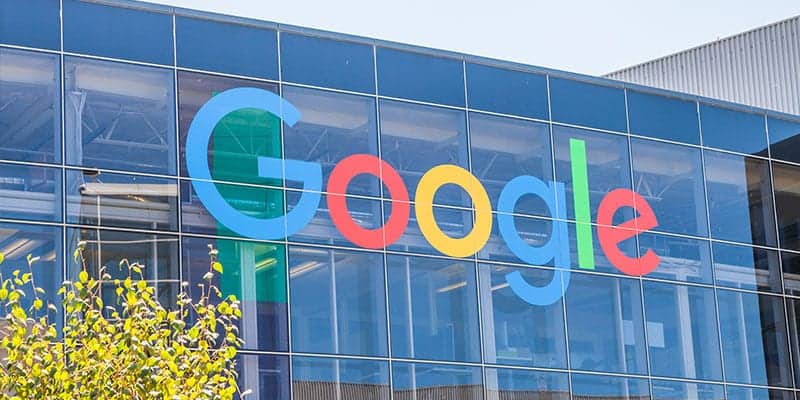If you are like most people affected by the disease of addiction, you use the Internet – primarily Google – to search for drug and alcohol rehab programs near you. When the search engines display the results of your query, you are shown a multitude of ads relating to “recovery”, “addiction”, “rehab”, and other such terms.
Too Many Addiction Rehab “Choices”, Not Enough Real Solutions
“We began to see a trend toward such practices, primarily in terms of program marketing, several years ago. Such practices give an unfair advantage to certain providers, raise concerns about quality of care, make it difficult for values-based providers to succeed, and harm the reputation of the entire field.” ~ Marvin Ventrell, Executive Director of the National Association of Addiction Treatment Providers But with so many choices, how can you know for sure which ads will connect you with programs that are legitimately right for YOU and your situation? Up until today – YOU COULDN’T. At least, not without a lot of tedious, time-consuming additional research. And because the vast majority of individuals and families dealing with substance abuse disorders are in crisis and in need of IMMEDIATE help, they are essentially at the mercy of the advertisement. But far too often, your desperate mouse-click or mobile phone swipe takes you either a generic clearinghouse website that lists dozens of rehab programs that don’t necessarily fit your needs, or even worse – puts you in contact with a dubious treatment program that is unaccredited, unlicensed, and unaffiliated with any reputable professional associations within the addiction recovery industry. So why the problem? Well, some of these so-called rehabs advertising on Google are incompetent and do little to nothing to help a struggling drug addict or alcoholic learn how to best manage their disease. At worst, they are dangerous when they keep someone from getting the real specialized care that they need. Google certainly needed to put some rules in place to protect consumers.
Google Moves in to Protect Consumers
“We found a number of misleading experiences among rehabilitation treatment centers that led to our decision.” ~ Google spokeswoman Elisa Greene This mid-September, Google announced a surprising move– the company has started restricting the paid online advertisements that result when someone searches for drug treatment programs using their search engine. This is a necessary step, because many unfit rehab centers employed a marketing strategy where they would buy ads from Google that would pop up whenever anyone performed a search using such key phrases as “alcohol rehab” or “drug treatment centers.” Effective immediately, Google no longer sells ads related to such queries. Although such an action is rare, this is not the first time that Google has stepped in to protect users of its services. In 2016, the Internet giant banned ads about payday loans, citing predatory practices that harmed consumers by trapping them in an overwhelming cycle of debt. Similarly, Google has also created a system to verify locksmiths to cut back on “bait-and-switch” tactics, fraud, unqualified technicians, and other poor business practices. If similar vetting policies eliminating misleading ads and unqualified rehab programs can be enacted, these restrictions may be lifted at some future date. George Fischer, a marketing director working in the addiction recovery field, says, “People trust that when they’re searching things, what Google is showing them is legitimate. If they had a certification program in place, that would be a big step forward.”
The Recovery Sector Supports Google’s Actions
“This is a bold move by one of the world’s biggest companies, saying people’s lives are more important than profit.” ~ Greg Williams, co-founder of Facing Addiction, a nonprofit advocacy group The ban only affects paid ads, not the specific websites of the myriad inpatient and outpatient addiction recovery centers in the United States. Reputable rehab programs can still have legitimately-informative websites where potential clients can go to learn more about the services offered and the qualifications of the providers. In fact, this move by Google will probably have a smaller impact on accredited rehab programs across the country than one might otherwise expect. Treatment centers can still have blogs, newsletters, and other educational content on their websites, and potential clients can make up their own minds as to the value of that information and contact the program directly, rather than through an ad. In a letter to his fellow NAATP members, the Association’s Executive Director wrote, “This is a significant and welcomed move given the tremendous abuses we see on the Internet…It comes as a result of good providers and advocates consistently bringing the problem to Google’s attention.”
Why Was This Move by Google Necessary?
“People don’t always know what good treatment is. I am glad Google took steps to prevent the spread of these false ads.” ~ Dr. Vivek Murthy, who served as the US Surgeon General during the Obama administration Addiction recovery is one of the few areas of healthcare where patients chiefly rely on Internet searches for information when they’re looking for a provider. The same people who would ask friends and family for suggestions when looking for a general practitioner or a dentist, for example, usually can’t use those same resources to find a professional addictionologist or a properly-affiliated local rehab program. Likewise, struggling addicts and alcoholics very rarely receive referrals for specialized care from other healthcare professionals. In fact, substance abusers often may not even have a primary physician who is aware of their disorder. So where does that leave afflicted substance abusers and their families? The Internet. Unfortunately, Google ads aren’t ranked in order of merit or qualifications. Instead, ad-related search results are ranked by the highest bidder. Companies pay top dollar for top ad listings—as much as $70 or more for a single click. This cost isn’t a major concern—largely because of the ongoing opioid epidemic, the addiction recovery field is a $35 BILLION a year industry. Currently, insurance companies are required by law to provide coverage for treatment services, which can run in the tens of thousands of dollars. The problem arises when some rehab providers are motivated by profit, rather than by the obligation to faithfully meet the needs of their clients. As a result, they resort to false business practices—
- Lacking accreditation/affiliation
- Inflating staff qualifications
- Misrepresenting their physical location
- Improper billing practices
How to Identify Reputable Addiction Recovery Programs
“This move, while significant, is of course not the whole issue, which is why NAATP has launched its Quality Control Initiative, focused on protecting and promoting good providers and weeding out the bad.” ~ Martin Ventrell Because the Google ban only targets ad-related results, searches will still bring up relevant websites. From that list, individuals and families battling an addictive disorder can get a better idea as to which rehab programs can best handle their unique needs. Things to look for include:
- Is the program accredited? This extra step shows a commitment to providing the highest level of care.
- Are the members of the treatment staff licensed by the state? This shows that the service providers have the education, experience, and expertise to help clients overcome their addiction.
- Is the program/facility affiliated with any recognized professional organizations? This demonstrates that measurable standards are being met.
- Does the rehab program provide the specific services you may need, such as:
- Detox
- Dual-diagnosis treatment for any co-occurring mental disorders.
- Residential or outpatient rehab—the level of care needed depends on your individually-assessed diagnosis.
- Services or information for family members
- Where are they physically located? This matters because of logistics—travel, visits, aftercare, etc.
- Can you view or tour the facility? You want to be sure that you are as physically safe and comfortable as possible while you recover.
- Do they accept your insurance? This means their service fees are within accepted parameters.
- Is their website informative? There should be blogs, infographics, or other educational resources that help you learn more about the disease of addiction.
- Are there testimonials? Former clients can provide a wealth of information.
A Brand-New Day in Alcohol and Drug Rehab
In the end, Google has forever changed the addiction recovery field, because this significantly raises the bar in terms of the level of care addicts and alcoholics are likely to find when searching for help via an Google search. This move means that people with Substance Abuse Disorders will more quickly be connected to real, reputable rehab programs, rather than misleading or unqualified click-for-profit paid ad sites. And THAT is the best news of all.


